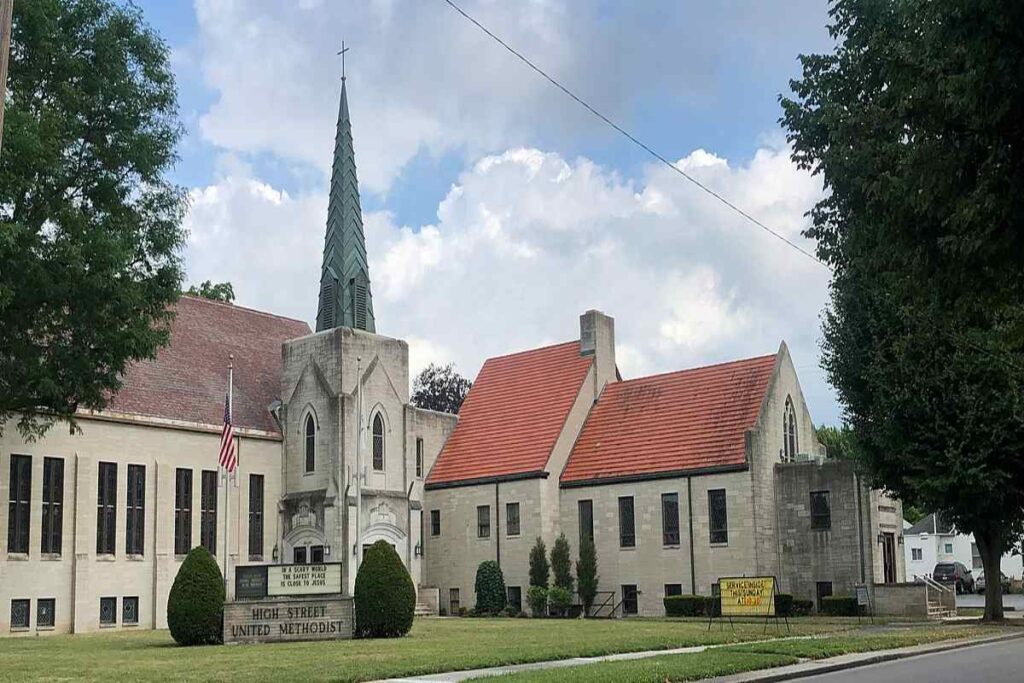In a historic move that echoed through church hallways and communities, the United Methodist Church (UMC) declared that its forty-year prohibition on LGBTQ clergy would be lifted. This action is an exciting story of inclusion within one of the biggest Protestant groups in the world.
The top legislative assembly of the United Methodist Church took a vote to end the restriction. This is the latest move by the UMC to undo regulations that many progressive and moderate Methodists consider to be unnecessarily restrictive. There is also discussion about other plans to lift prohibitions on same-sex partnerships and change the penalties for conflicts.
The UMC General Conference’s choices aim to reverse traditional Methodist efforts. The decisions are crucial for the UMC’s future amidst recent splits over LGBTQ+ issues involving 7,500 U.S. congregations.
The UMC’s long-running controversy over LGBTQ inclusiveness reflects larger Christian discussions over the relationship between faith and sexuality. The denomination’s decision to lift the prohibition is the result of years of deliberation, prayer, and discussion. It implies a readiness to accept diversity and acknowledge that every person is different.
ALSO READ: Methodist Congregations Abandon Church Over LGBTQ Issues
A sizable crowd exploded in celebration when the UMC General Conference decided to repeal the restriction. Even with a barrier separating delegates and observers, several people in the audience sobbed and hugged one another.
The recently repealed restriction on ordaining LGBTQ+ clergy has direct and palpable ramifications for Ohio’s Rev. Angie Cox. Cox, a married lesbian, had attempted UMC ordination six times in the last five years. The board of ordained ministry of the West Ohio Conference has consistently rejected her candidacy.
Although Cox serves as the pastor of a congregation in Columbus, her failure to get ordination credentials is a protest against her personhood and a restriction on her right to participate in United Methodist activities.
POLL—Should the U.S. Government Create a Path to Citizenship for Undocumented Immigrants?
The UMC delivers a strong message of acceptance to the LGBTQ community by welcoming LGBTQ clergy and demonstrating their value and dignity as God’s loving children.
The decision to allow LGBTQ clergy affects LGBTQ lives in the church significantly, not just symbolically. It implies that those who identify as LGBTQ and feel called to ministry do not need to hide or repress their identity.
Of course, there are still obstacles in the way of the UMC’s complete LGBTQ inclusivity. Despite lifting the ban on LGBTQ clergy, the institution faces challenges with same-sex marriage and LGBTQ bishop ordination. These are difficult topics that will require ongoing discussion, discernment, and prayer.
ALSO READ: Nassau County Bans Transgender Athletes From Women and Girls’ Sports at County-Run Facilities
Ultimately, lifting the ban on LGBTQ clergy reflects embracing Jesus’s radical message of inclusivity, love, and acceptance for all.
Recalling the words of the apostle Paul, “There is neither Jew nor Greek, slave nor free, male nor female, for you are all one in Christ Jesus” (Galatians 3:28). The United Methodist Church advances equity, care, and inclusivity by accepting this reality.
You Might Also Like:
Melissa McCarthy Unbothered by Barbra Streisand’s Obnoxious IG Comments
Kristi Noem: Everything We Know About the Trump VP Contender and Why She Killed a Dog
Red Lobster’s Failure as a Case Study on How To Run a Business Down
Tourists Spot Killer Whale Nicknamed “Frosty” off California Coast
Rep. Marjorie Taylor Greene Announces Move To Oust Mike Johnson, Sets House in Turmoil
